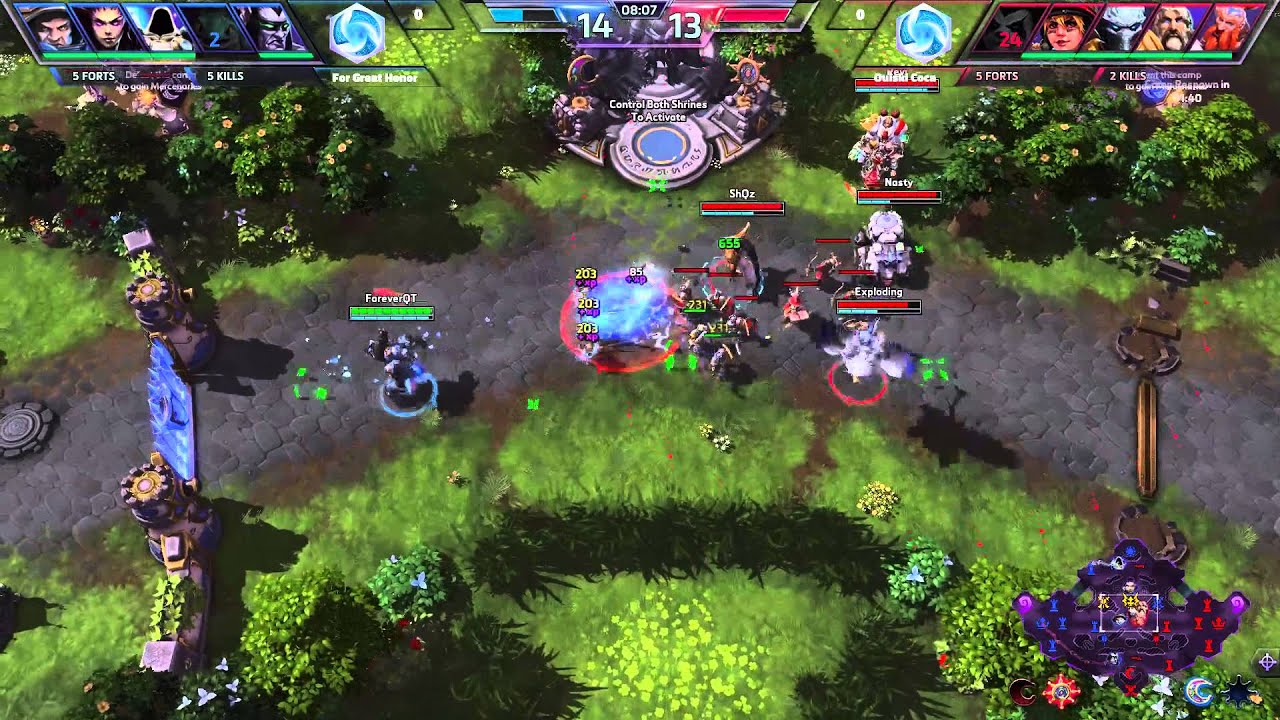Starcraft Heroes – Overmind
Created thousands of years ago by the enigmatic Xel’Naga, the Overmind represents the collective consciousness of the Zerg race. Obsessed with his belief that he exists only to become the perfect life form by assimilating the strongest races in the universe, the Overmind is steadfast in his sacred mission.
Planets Starcraft – Mar Sara
Mar Sara was the eighth colony world settled by the former Terran Confederation. Although the planet is rather desolate and remote, its mining industry was once considered a key strategic resource. He was overrun by the Zerg and later cremated by the Protoss. Intrepid Terrans terraformed the planet and recolonized it in 2502.
Starcraft Units – Drohne
The Drone is the Zerg Worker. It can gather Minerals and Vespene Gas and has a low-damage ranged attack (range of one.) It can morph into a Zerg building anywhere on any Creep generated from Creep Colonies and Hatcheries, even when the creep is sustained by neutral or enemy buildings.
Starcraft Missions – Moebius factor
Description: Seems your Queen of Blades figured out who’s paying us to collect all the artifacts. Moebius’ boss, Dr. Narud, says the Zerg are attacking the research center on Tyrandor. He can’t evacuate his people until they’ve gotten all the artifact research papers to safety.
Starcraft Buildings – Warp Gate
The Warp Gate is a unit producing structure for the Protoss, capable of warping in ground units. Warp Gates provide an ability unique to the Protoss: the rapid creation of units at any location on the map covered by the Psionic Matrix, so long as the location is not obscured by the fog of war. This allows for quick, on-demand deployment of troops at key strategic locations.
Follow us and check out our social media accounts on Twitter, Facebook & YouTube ►
● on Twitter ► esport.directory
● Facebook ► esport.directory
● Youtube ► esport.directory
Starcraft
Starcraft is a turn-based game. The active player receives the obligatory first player token, so it should always be clear whose turn is being played, and especially interesting: StarCraft does not require any dice at all.
To get started, you first have to agree on your faction, then gather all the necessary figures, cards and tokens of your faction (woe betide the game master who only starts sorting now!) and leave the table in the middle free, as this is where the galaxy, i.e. the playing field, is built.
This proceeds similarly to Twilight Imperium.
Each player draws two planet tokens, which they can use to pick their planets from the planet stack. This step is necessary because the planet cards are shaped differently and the tokens are the only way to ensure that the drawing is random.
The starting player then places his first planet in the center of the table and can already build a base – but he doesn’t have to, then he has to do it on his second planet as soon as he lays it out.
Once the first planet is in place, it is the next player’s turn to lay out his first planet and connect it to the previous player’s planet with a navigation route cardboard piece. The last player may lay out both planets at the same time and then it goes in reverse order to the starting player. This way a more or less interconnected galaxy is created.
Finally, Z-axes are laid, which are navigation routes across loose ends, sort of a 3D conversion.
Each player receives the corresponding resource cards for his two planets and then only the event cards are reduced according to the number of players, shuffled and placed on the board. There are three event card phases, which is symbolized by different card backs and should help the game to become faster and more powerful towards the end. Now the game can start.
Each round is divided into three phases.
Starcraft is a turn-based game. The active player gets the obligatory first player token, so it should always be clear whose turn is being played, and most interestingly, StarCraft doesn’t require any dice at all.
To get started, you first have to agree on your faction, then gather all the necessary figures, cards and tokens of your faction (woe betide the game master who only starts sorting now!) and leave the table in the middle free, as this is where the galaxy, i.e. the playing field, is built.
This proceeds similarly to Twilight Imperium.
Each player draws two planet tokens, which they can use to pick their planets from the planet stack. This step is necessary because the planet cards are shaped differently and the tokens are the only way to ensure that the drawing is random.
The starting player then places his first planet in the center of the table and can already build a base – but he doesn’t have to, then he has to do it on his second planet as soon as he lays it out.
Once the first planet is in place, it is the next player’s turn to lay out his first planet and connect it to the previous player’s planet with a navigation route cardboard piece. The last player may lay out both planets at the same time and then it goes in reverse order to the starting player. This way a more or less interconnected galaxy is created.
Finally, Z-axes are laid, which are navigation routes across loose ends, sort of a 3D conversion.
Follow us and check out our social media accounts on Twitter, Facebook & YouTube ►
● on Twitter ► esport.directory
● Facebook ► esport.directory
● Youtube ► esport.directory
Starcraft Gameplay, Starcraft Rankings, Starcraft Release Date, Starcraft Carrier, ‚ Starcraft Cover, Starcraft Skins, Starcraft Videos, Starcraft Video YouTube, Starcraft PS4, Starcraft Platforms, Starcraft Players, Starcraft Team,






